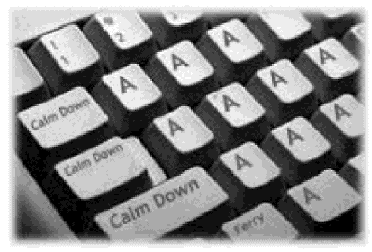I don't think the real issue is with tresure parcels, but instead it's how the DM builds encounters.
I recently DMed a campaign that got from lvl 1 to lvl 12.
They had:
-Human ranger (twf), non-optmised
-eladrin swordmage, optimised (well, sorta)
-dwarf paladin, non optimised
-human wizard, optimised (sorta)
At level 6 it became obvious that something was wrong, as the paladin could only hit certain key villains on a 17+, while the swordmage could still hit on a 12 or so.
One thing that, as a DM, I can see becoming an issue, is that as the campaign unfolds more and more encounters becomes much more "meaningful" and I throw away easy/trivial encounters much less often, which means, I'll make less encounters, though, more difficult ones, and that means, higher level monsters. If as a DM I could keep the monsters at the same level as the PCs even if while doing so increasing the overall number of monsters, then the problem would be solved.
At low-to-mid heroic tier levels, PCs can beat up a nasty solo that is up to 4 levels higher than they are with some trouble, but still quite "epic" and viable. If you try to do the same at, say, late heroic, you'll see a whole bunch of frustrated people.
When my campaign hit lvl 11 I decided to give Weapon/Implement Expertise for free to those who'd keep their characters for the next chapter of the campaign, it was pretty nice seeing the dwarf hitting stuff again. The ranger also enjoyed it, though, the difference was more subtle for him. The others changed their characters for highly optimised ones, and they didn't care at all about it.
I still got to see how Epic Tier plays, but I'm not really that much into it, so I probably will never see it and thus will never be able to form an opinion about it.
Anyways, I guess, botom line is: if you're missing alot, or if the encounter feels like a grind, it's probably your DM's fault (well, at least partly).
I think I learned my lesson.
Examples:
-For a group of lvl 8 PCs, if you want to give them a difficult encounter (lvl+2), instead of placing higher level foes, try adding a couple extras of the same level as the PCs.
-Against solos, try using a lower level one (up to PCs lvl +1) and then add some hazards and/or lower level foes to support the BBEG.
I recently DMed a campaign that got from lvl 1 to lvl 12.
They had:
-Human ranger (twf), non-optmised
-eladrin swordmage, optimised (well, sorta)
-dwarf paladin, non optimised
-human wizard, optimised (sorta)
At level 6 it became obvious that something was wrong, as the paladin could only hit certain key villains on a 17+, while the swordmage could still hit on a 12 or so.
One thing that, as a DM, I can see becoming an issue, is that as the campaign unfolds more and more encounters becomes much more "meaningful" and I throw away easy/trivial encounters much less often, which means, I'll make less encounters, though, more difficult ones, and that means, higher level monsters. If as a DM I could keep the monsters at the same level as the PCs even if while doing so increasing the overall number of monsters, then the problem would be solved.
At low-to-mid heroic tier levels, PCs can beat up a nasty solo that is up to 4 levels higher than they are with some trouble, but still quite "epic" and viable. If you try to do the same at, say, late heroic, you'll see a whole bunch of frustrated people.
When my campaign hit lvl 11 I decided to give Weapon/Implement Expertise for free to those who'd keep their characters for the next chapter of the campaign, it was pretty nice seeing the dwarf hitting stuff again. The ranger also enjoyed it, though, the difference was more subtle for him. The others changed their characters for highly optimised ones, and they didn't care at all about it.
I still got to see how Epic Tier plays, but I'm not really that much into it, so I probably will never see it and thus will never be able to form an opinion about it.
Anyways, I guess, botom line is: if you're missing alot, or if the encounter feels like a grind, it's probably your DM's fault (well, at least partly).
I think I learned my lesson.
Examples:
-For a group of lvl 8 PCs, if you want to give them a difficult encounter (lvl+2), instead of placing higher level foes, try adding a couple extras of the same level as the PCs.
-Against solos, try using a lower level one (up to PCs lvl +1) and then add some hazards and/or lower level foes to support the BBEG.

 This feat gives a measly +1 to hit...just like weapon focus of 3.xe...what's the big deal? Jus' allow it already!
This feat gives a measly +1 to hit...just like weapon focus of 3.xe...what's the big deal? Jus' allow it already! 

